Posted In Conservation | 21st May 2024
Saving Vietnam’s Turtles
Dublin Zoo is proud to announce a new conservation partnership with the Asian Turtle Program of Indo-Myanmar Conservation, helping to conserve the critically endangered Vietnamese Pond Turtle (Mauremys annamensis) in Cuc Phuong National Park, Ninh Binh Province, Vietnam.
This incredibly rare species is listed as Critically Endangered on the IUCN Red List and is not known to occur in any protected areas in Vietnam. The species has suffered 99% reduction in its population size over the last 50 years, with the main threats faced including poaching for sale in the international wildlife trade and loss of its lowland wetland habitats. Today, the species is believed to persist only in tiny pockets of suitable habitat.
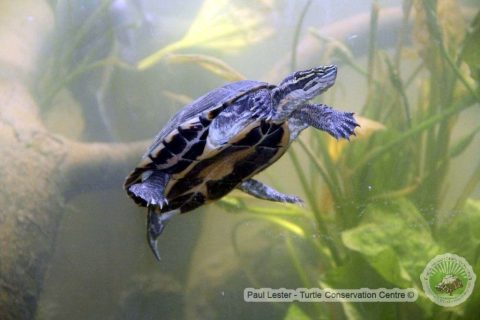
The role of the Turtle Conservation Centre
Based in Northern Vietnam, Cuc Phuong National Park is home to the Turtle Conservation Centre (TCC), which is co-managed through a collaboration with the Asian Turtle Program, and was established in 1998 as a rescue and holding centre for tortoises and freshwater turtles. Many of Vietnam’s native species suffer from the illegal wildlife trade and animals from neighbouring countries, such as Laos and Cambodia, are also confiscated as they are transported through Vietnam on their way to the primary markets in China. The demand for tortoises and freshwater turtles in this international trade for consumption as food, traditional medicine and the pet trade is widely understood to be unsustainable.
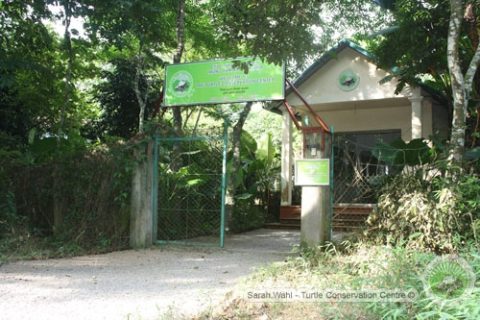
The TCC’s original objectives were to provide a place where rescued tortoises and freshwater turtles could be rehabilitated for release, while also being used for enforcement training and educational purposes. The centre now has specialised breeding and holding facilities for more than 2,000 turtles, representing 22 of Vietnam’s 26 native species. Most animals at the centre have been confiscated from the illegal wildlife trade by wildlife protection authorities, or were hatched onsite.
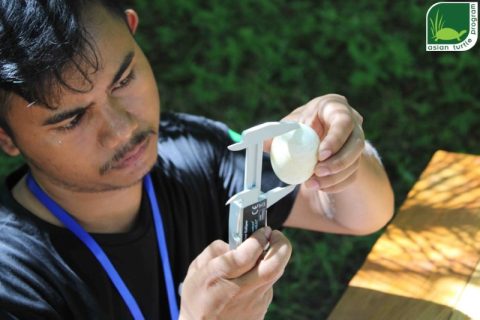
The work of the TCC’s breeding programme
A breeding programme for the Vietnamese Pond Turtle has been underway at the TCC for several years, with animals confiscated from the illegal wildlife trade. The TCC is now caring for a group of over 900 Vietnamese Pond Turtles, most of which have been bred at the centre from a small founder group of only around 20 individuals. Dublin Zoo’s support will allow the Asian Turtle Program to construct a new 150 square metre holding facility for juvenile and sub-adult Vietnamese Pond Turtles at the centre.
The Vietnamese Pond Turtle population at the TCC is incredibly important to the species’ continued survival, and can be used for future reintroduction projects. The Asian Turtle Program is working hard to identify suitable habitats for the future reintroduction of Vietnamese Pond Turtles, where they will be protected from poaching. To achieve this, they have been undertaking field surveys and using eDNA (environmental DNA) to find the last remaining populations of wild Vietnamese Pond Turtles.
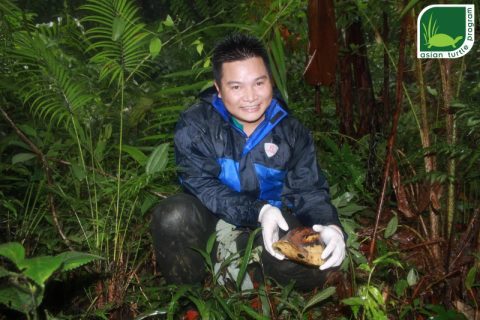
Raising awareness on the plight of Vietnam’s turtles
The TCC is committed to raising public awareness about the plight of Vietnam’s turtles. Cuc Phuong National Park visitors can visit the TCC and view incubation rooms and outdoor enclosures. Since 2005, the TCC has also hosted the annual Tortoise and Freshwater Turtle Field Skill Training Course for university students and rangers from Vietnam. To date, over 150 students from universities and colleges have taken part. The TCC also regularly welcomes rangers and officers from various Vietnamese authorities to teach them about turtle and tortoise conservation, identification and legal protections, supporting law enforcement to help prevent wildlife crime.
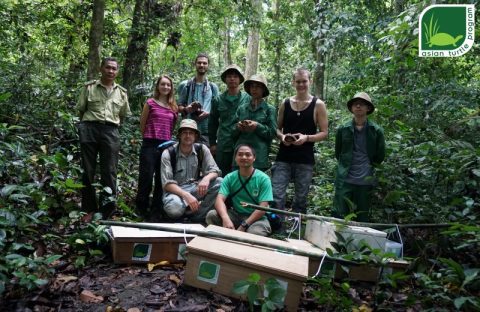
Commenting on the work of the TCC, Tim McCormack, Program Director for the Asian Turtle Program, said:
“We have made good progress with the Vietnamese Pond Turtle project, and are now managing a group of around 900 animals at the Turtle Conservation Centre, mostly captive-raised. We have several ongoing activities focusing on the species, including enforcement training, community engagement and school programs, and annual field surveys.”
For more information about the Asian Turtle Program, visit their website here and their Facebook page here.
All images featured in this piece are courtesy of the Asian Turtle Program.